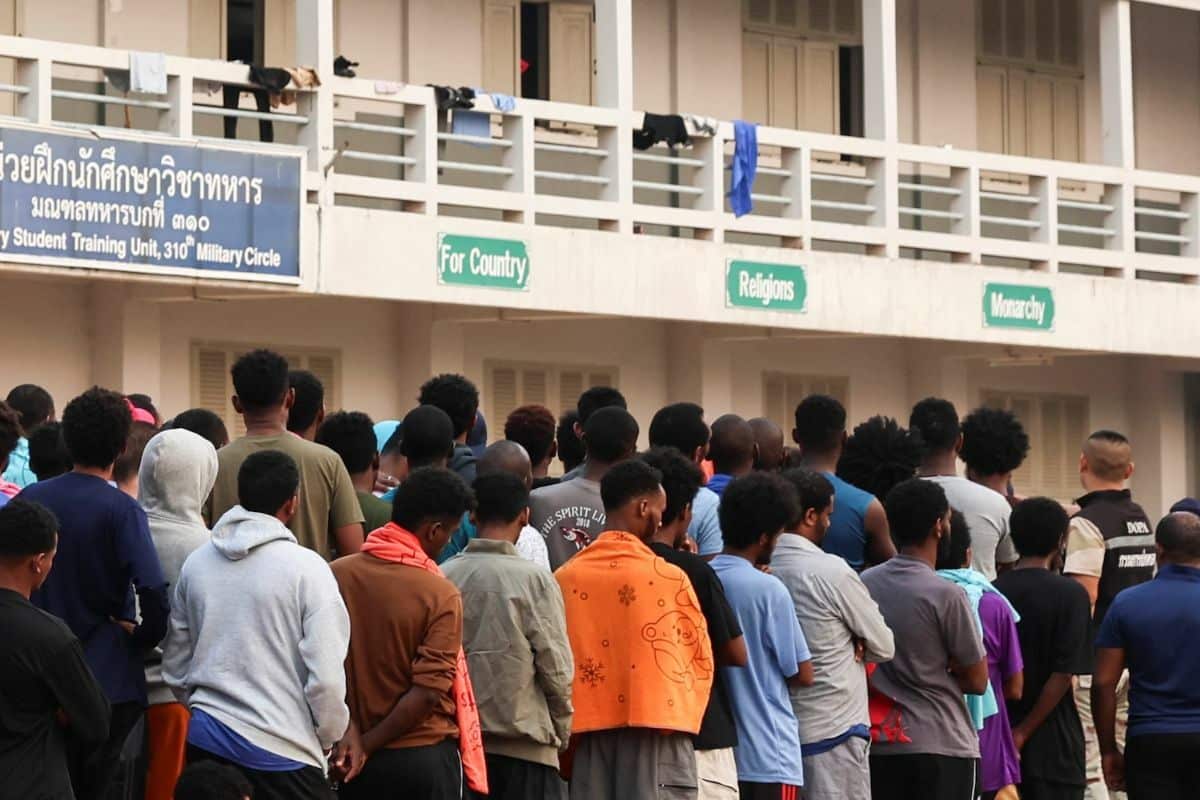Scam horror: Ethiopian men reveal abuse in Myanmar compounds

In Thailand’s Fort Wachiraprakan military camp, four Ethiopian men revealed bruises and scars they acquired during their detention in Myanmar’s infamous scam compounds.
Yotor, a 19 year old, spoke about daily electric shocks. These men are among 260 individuals, primarily human trafficking victims, transferred from Myanmar to Thailand as part of an ongoing international effort to dismantle scam centres along the Thai-Myanmar border.
The United Nations reports that criminal organisations have long trafficked thousands into these Southeast Asian compounds, where victims are coerced into illegal online activities.
Thai government officials and police intensified their crackdown after the abduction of Chinese actor Wang Xing, who was found near Myawaddy in Myanmar and has since returned to China. This incident drew attention from the Thai tourism sector and government.
This month, Thailand ceased providing electricity, fuel, and Internet to three border areas, a move encouraged by China, which sent a senior security officer to Thailand to manage the repatriation of criminals and victims. Yotor, now sheltered in a military camp, recounted his deception, initially attracted by a Bangkok job offer, only to be taken to Myanmar.
Prime Minister Paetongtarn Shinawatra disclosed that approximately 7,000 individuals rescued from Myanmar’s scam compounds are pending transfer to Thailand. Of these, around 600 Chinese nationals are scheduled to return home via flights from Mae Sot Airport, according to Defence Minister Phumtham Wechayachai.

Others rescued from these compounds described being forced to work nearly 20 hours daily, defrauding people through messaging applications like WhatsApp, reported Bangkok Post.
Faysal, a 21 year old from Bangladesh, explained the pressure to meet targets, resulting in beatings for non-compliance.
“We are not scammers, we are victims.”
In related news, Police Lieutenant General Trirong Phewpan, head of the division, confirmed the return of 260 people from Myawaddy, Myanmar, after being coerced into working for a call centre syndicate. Only a handful had willingly accepted the job.
A joint operation involving 50 cyber police officers and local authorities gathered evidence against the gang, focusing on their fraudulent activities.
A thorough investigation under the National Referral Mechanism (NRM) revealed many were victims of human trafficking, contradicting earlier reports. Police apologised for the miscalculation.
Evidence, including 107 IMEI numbers and data from 35 phones, will be analysed to prosecute those responsible.
Latest Thailand News
Follow The Thaiger on Google News:


























